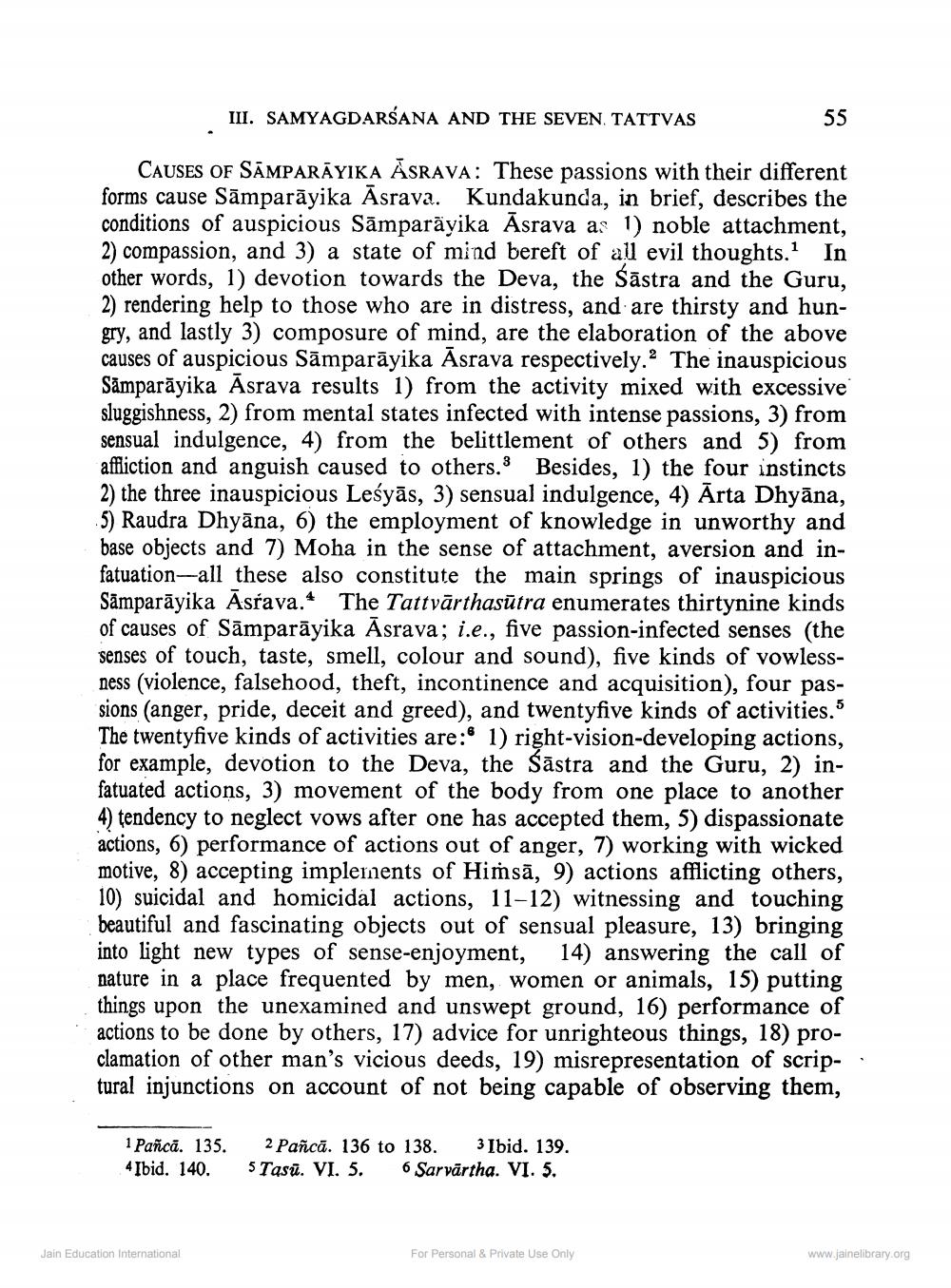________________
III. SAMYAGDARSANA AND THE SEVEN. TATTVAS
55
CAUSES OF SAMPARĀYIKA ASRAVA: These passions with their different forms cause Sāmparāyika Asrava. Kundakunda, in brief, describes the conditions of auspicious Sāmparāyika Asrava as 1) noble attachment, 2) compassion, and 3) a state of mind bereft of all evil thoughts. In other words, 1) devotion towards the Deva, the Šāstra and the Guru, 2) rendering help to those who are in distress, and are thirsty and hungry, and lastly 3) composure of mind, are the elaboration of the above causes of auspicious Sāmparāyika Asrava respectively. The inauspicious Sämparāyika Asrava results 1) from the activity mixed with excessive sluggishness, 2) from mental states infected with intense passions, 3) from sensual indulgence, 4) from the belittlement of others and 5) from affiliction and anguish caused to others. Besides, 1) the four instincts 2) the three inauspicious Leśyās, 3) sensual indulgence, 4) Arta Dhyāna, 5) Raudra Dhyāna, 6) the employment of knowledge in unworthy and base objects and 7) Moha in the sense of attachment, aversion and infatuation--all these also constitute the main springs of inauspicious Sāmparāyika Asrava. The Tattvārthasūtra enumerates thirtynine kinds of causes of Sāmparāyika Āsrava; i.e., five passion-infected senses (the senses of touch, taste, smell, colour and sound), five kinds of vowlessness (violence, falsehood, theft, incontinence and acquisition), four passions (anger, pride, deceit and greed), and twentyfive kinds of activities.5 The twentyfive kinds of activities are: 1) right-vision-developing actions, for example, devotion to the Deva, the Sāstra and the Guru, 2) infatuated actions, 3) movement of the body from one place to another 4) tendency to neglect vows after one has accepted them, 5) dispassionate actions, 6) performance of actions out of anger, 7) working with wicked motive, 8) accepting implements of Himsā, 9) actions afflicting others, 10) suicidal and homicidal actions, 11-12) witnessing and touching beautiful and fascinating objects out of sensual pleasure, 13) bringing into light new types of sense-enjoyment, 14) answering the call of nature in a place frequented by men, women or animals, 15) putting things upon the unexamined and unswept ground, 16) performance of actions to be done by others, 17) advice for unrighteous things, 18) proclamation of other man's vicious deeds, 19) misrepresentation of scriptural injunctions on account of not being capable of observing them,
1 Pañcā. 135. 4 Ibid. 140.
2 Pañcā. 136 to 138. 3 Ibid. 139. 5 Tasū. VI. 5. 6 Sarvārtha. VI. 5.
Jain Education International
For Personal & Private Use Only
www.jainelibrary.org




